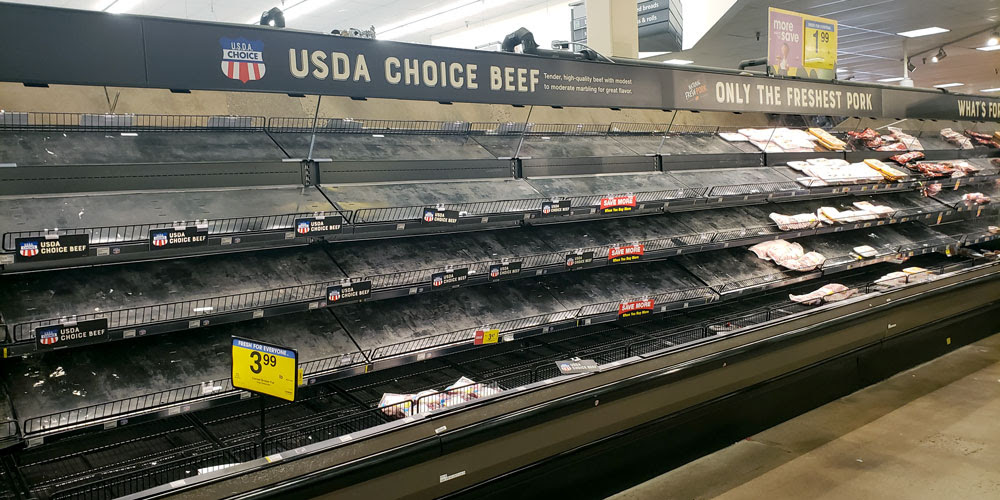
REGIONAL
Sioux Falls pork processing plant closes indefinitely
Smithfield Foods announced this weekend that it will close its Sioux Falls, South Dakota pork processing plant indefinitely, following the recommendations of South Dakota Governor Kristi Noem. The plant was temporarily closed for cleaning after many of its employees tested positive for COVID-19, but Governor Noem and Sioux Falls Mayor Paul TenHaken urged the company to implement more stringent measures. Nearly 300 of the 3,700 plant employees were confirmed to have COVID-19, representing 55% of the state’s total cases.
Smithfield produces nearly 130 million servings of food per week, accounting for 4-5% of pork production in the United States. Smithfield continued operations in an effort to maintain the country’s food supply as other major meat processors halted their production. Tyson Foods, Cargill Inc., and JBS USA have each closed several plants due to either large numbers of employee absenteeism or COVID-19 cases among their employees.
Smithfield CEO Ken Sullivan warned about meat supply shortages during the pandemic. “Unfortunately, COVID-19 cases are now ubiquitous across our country,” he said. “The virus is afflicting communities everywhere. The agriculture and food sectors have not been immune."
He further explained the repercussions of shutting down slaughterhouses beyond meat availability in grocery stores. Farmers are left without places to send their livestock. Smithfield’s Sioux Falls plant, alone, is supplied by more than 550 farms in the region. The plant will resume operations following the guidance of local, state, and federal authorities, but will continue to pay employees for the next two weeks.
NATIONAL
U.S. COVID-19 death toll surpasses Italy
The United States has surpassed Italy in reported COVID-19 deaths, reaching over 21,600 deaths. Italy, whose population is about 19% of the U.S. population, has lost more people per capita, reporting over 20,400 deaths.
Models predict that the U.S. death toll could reach 200,000 over the summer, especially if existing stay-at-home orders are lifted before May. Such orders have been challenging and inconsistent due to a lack of coordinated response among officials at the local, state, and federal levels. Although federal guidelines advocate for social distancing until the end of the month, states have implemented their own guidelines. Discrepancies exist. Only 42 states have stay-at-home orders and some states have made exceptions for religious purposes, calling them essential services.
Despite this, though, there are hopeful data. This week’s Morbidity and Mortality Weekly Report from the Centers from Disease Control revealed widespread compliance with social distancing, and New York City reported a decline in the rate of the new coronavirus cases.
INTERNATIONAL
Great ape sanctuaries closed amid coronavirus threat
Gorilla tourism and orangutan sanctuaries in Africa are closed to the public amid the pandemic. It is unknown whether great apes can contract the novel coronavirus (SARS-CoV-2), but these are precautionary measures in light of the attention surrounding the anthroponotic transmission of COVID-19 from people to the Bronx Zoo tiger.
Mountain gorilla tourism had enforced social distancing measures before the pandemic. Tourists were required to maintain a distance of seven feet due to the gorillas’ susceptibility to other human diseases.
Mountain gorillas are endangered and face threats of habitat loss, infectious diseases, and poaching. They are only found in Uganda, Rwanda, and the Democratic Republic of Congo—countries that have each reported human COVID-19 cases.
Reuters
Minnesota Public Radio
National Public Radio
